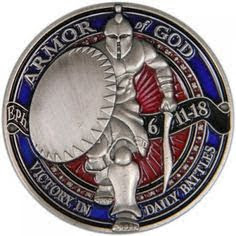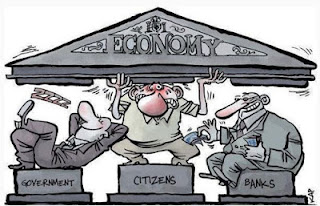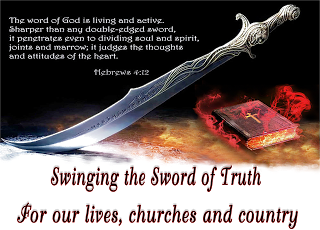When you have your taxes taken from your paycheck to pay Social Security Taxes, you may have believed that those funds were placed in a Trust Fund so that such money would be available when you retire.
Wrong.
For the past thirty to forty years, Congress has been raiding the Social Security Trust Account and has all but depleted such Account.
Theoretically, the Federal Government could pay off Trillions of Dollars in Debt it has acquired tomorrow.
However, if the Government was to do this, you also may need a wheelbarrow of money to buy a stick of gum.
Bankruptcy Code does not provide a Chapter that would enable the Federal Government from filing Bankruptcy.
When attempting to Translate business acumen into the world of government finance,The United States simple English is we cannot pursue a similar strategy.
One reason why it would be especially hard to “make a deal” on U.S. government debt is that it is not held by just a few people or companies. U.S. government debt, in the form of Treasury bonds, is held by U.S. banks, U.S. citizen-savers, foreign governments, and pension funds. The United States could just announce that it would pay less (say, 80 cents on the dollar) many holders would have no choice but to take it. Yes, that means that if you put some money in Treasury bonds and the government just announced it would only pay you back half, then you’d probably have to settle for that. If you want to call that, “making a deal,” go ahead.
Having a weak will is like having a little donkey in your backyard. It can't hurt you very much: about the worst it can do is chomp on your tulips.
But it cant help you that much either, and you could end up with a life of regrets for not doing things you thought you should do.
Those horses are massive and extremely strong, and if they are Properly Trained, Disciplined, and Harnessed, then with them you can literally move mountains.
Thus the distinction between harnessed and unharnessed will is important. But to what is the will to be harnessed?
Your will Cannot be Harnessed Simply to Yourself. It has to be Harnessed to A Power Higher Than Yourself.
Purchasing the distressed debt of ailing governments has long been a money maker for deep-pocketed investors. They buy bonds cheap, and wait for the country’s finances to turn around; then, they push for full repayments through varied courts to the tune of millions, or more, in profits.
Throughout the centuries prayerful people have found direction for their lives through the practice of the Examen (also known as the "Examination of Consciousness").
The Examen provides a way of noticing where God shows up in our day.
It is a practice that attends to what we might otherwise miss in the press of duties and business.
The questions of the Examen open our attention to how God's internal movement is present in our external comings and goings.
They lead us to Listen Deeply to the Data of Our Lives.
These questions help up pay Attention to our Mental State, Our Body Responses and Our Emotional Baggage.
The Examine helps us Recognize the things that bring us death and Life.
Once these things are known, they become part of our ongoing interaction with God in Prayer.
The Examen can open us to both the difficult and beautiful in our live, relationships, and profession.
The Examen is also a useful way of reflecting alone or with others on what God is saying to us through a Meeting, a Class, a Meal, a Service Project, a Relationship or Conflict.
The Examen is a wonderful tool for Discerning the places you fee Most Alive, Most Grateful, Most Present to the Fruit of the Spirit as well as the Times and Places Where You Do Not.
Those with melancholic tendencies may find that while the day's low points stand our clearly, they need the Examen to help them recognize the Life-giving moments the Spirit Brings During The Day.
Those naturally inclined to 'Optimism' need to Examen to help them Name the Difficult Things in Life.
The Examen Invites 'Attention' to both low and high points, Recognizing Both of These as an Invitation to Prayer.
Perspective and Direction for the Future happen through Listening Where and How God shows up in your day then interacting with God in Prayer.
Awareness of the Spirits Enlivening and Enlightening Presence puts you in Touch with the kind of person God created you to be.
When you Begin to Recognize who God created you to be, You Have The Raw Material for 'Discerning' God's Unique Call and Design for Your Life.
"For this reason, since the day we heard about you, we have not stopped praying for you and asking God to fill you with the Knowledge of His Will through All Spiritual Wisdom and Understanding. (Colossians 1:9)
"And this is my prayer: that your love may abound more and more in "Knowledge" and "Depth of insight", so that you may be able to 'Discern' What is Best and May Be Pure and Blameless until the day of Christ, filled with The Fruit of Righteousness that comes through Jesus Christ - to the glory and praise of God." (Philippians 1:9-10)
"The Examen makes us aware of moments that at first We Might Easily Pass us By as Insignificant, Moments that Ultimately Can Give Direction For Our Lives." - Dennis Linn
"Grace only Exists where someone is paying the price, Not Where Error is Overlooked. " - Udo Middleman.
Justice Seeks to Help Others through Correction and Redressing Wrongs. It Treats Others Fairly and Shows No Favoritism.
Shares: The Road Less Traveled and Spiritual Disciplines Handbook.























































